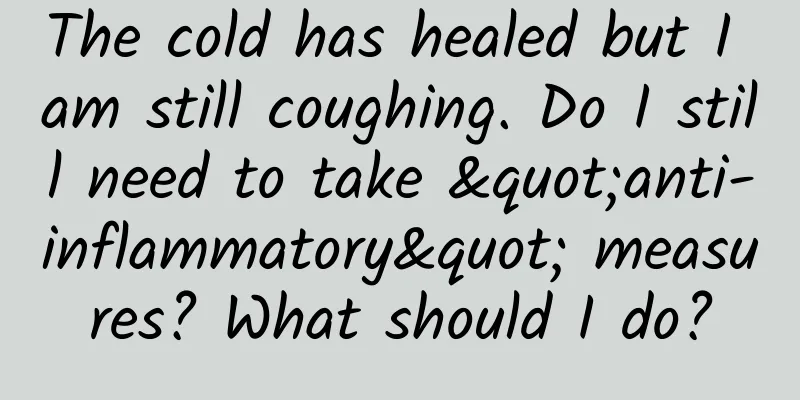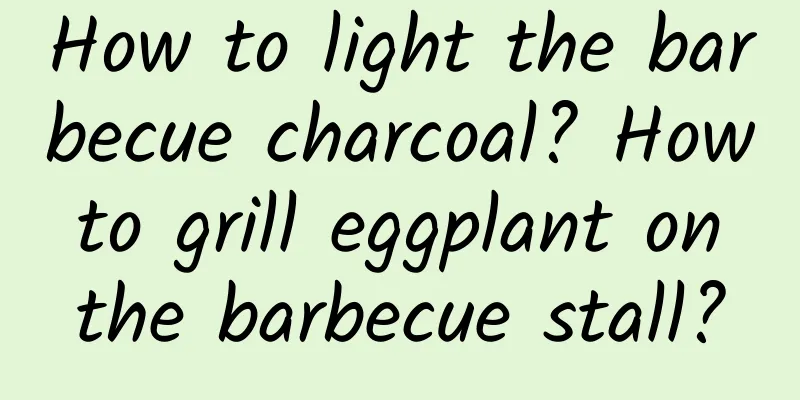The cold has healed but I am still coughing. Do I still need to take "anti-inflammatory" measures? What should I do?

|
A friend told Huazi that he had a severe cold some time ago and he still coughed after half a month. He thought that there was still inflammation in his body, but he took "anti-inflammatory drugs" such as cephalosporin and azithromycin for several days, but his cough did not get better. Huazi told him that he might have taken the wrong medicine. Because the cough after a cold is most likely not related to "inflammation", what he needs now is time to wait for the cough to heal on its own. If the cough symptoms are too severe, he can use cough suppressants to alleviate the symptoms instead of taking "anti-inflammatory drugs" indiscriminately. 1. Causes of cough after a cold Most colds are caused by viruses, which mainly infect respiratory epithelial cells and are recognized by the immune system. The human body then sends out immune cells to eliminate the virus. At this time, a large number of immune cells gather at the site of infection, causing congestion and mucus secretion in the respiratory mucosa, which stimulates nerve endings and causes coughing. Immune cells not only clear the virus, but also the respiratory epithelial cells infected by the virus, which will cause damage to the respiratory mucosa. The nerve endings here are particularly sensitive, and the slightest stimulation will cause coughing. The repair cycle of respiratory epithelial cells is about 3 to 8 weeks. In other words, you have to wait 3 to 8 weeks for the cough to ease. 2. Cough after a cold does not require "anti-inflammatory treatment" Ordinary people are used to calling antibacterial drugs such as cephalosporin, azithromycin, and various oxazolidinones "anti-inflammatory drugs", and believe that coughing means that the body is still inflamed and needs to be "anti-inflammatory". This is a wrong perception. Antibacterial drugs can only kill bacteria, but have no effect on viruses. In fact, humans do not have drugs that can directly kill viruses in the human body. Coughing after a cold is not "inflammation". Its essence is damage to the respiratory mucosa. It is a self-limiting disease and needs to wait for the mucosal cells to repair themselves. This time is about 3 to 8 weeks. If the damage is minor, the time may be shorter, but it will not exceed 8 weeks at most. At this stage, cough suppressants can be used to alleviate symptoms, and "anti-inflammatory drugs" are not needed. 3. How to deal with cough after a cold 1. Diagnosis first: Coughing after a cold is a self-limiting disease, but other diseases may also cause coughing symptoms. Therefore, you must first make a diagnosis and go to the hospital for blood routine, lung CT, allergen tests, etc. to rule out coughing caused by other diseases or cough variant asthma. 2. Reduce irritation: If you are diagnosed with a cough caused by a cold, you need time to wait for it to heal on its own. You can drink more water, wear a mask, keep warm and moisturize, stay away from car exhaust and secondhand smoke to reduce irritation and avoid aggravating the cough. 3. Cough suppressants: Cough after a cold is an irritating dry cough. If the cough is severe and affects your life and rest, you can use cough suppressants to relieve the symptoms. If the cough is severe during the day, you can use benproperine, which has a better cough suppressant effect. If the cough is severe at night, you can use dextromethorphan before going to bed, which has a longer cough suppressant effect. Cough syrup can also relieve symptoms. It should be noted that you should not drink water immediately after drinking cough syrup. The viscosity of the syrup can be used to cover the throat, reduce irritation, and increase the duration of drug action. 4. Expectorant drugs: If you have a lot of sputum when you cough, it is not recommended to use cough suppressants, otherwise it will not be conducive to the discharge of sputum and easily cause lung infection. You can use sputum thinning drugs such as ambroxol, acetylcysteine, bromhexine, etc. to promote the discharge of sputum. It should be noted that excessive sputum is usually a symptom of bacterial infection and needs to be diagnosed by a doctor. To sum up, coughing after a cold is a self-limiting disease. It does not mean that the body is still inflamed, and there is no need to use "anti-inflammatory drugs". Taking more rest, drinking more water, and avoiding stimulation can alleviate cough symptoms, which usually heal on their own in 3 to 8 weeks. If the cough symptoms are severe, cough suppressants can be used under the guidance of a doctor. If you have any questions about medication, please consult a doctor or pharmacist. I am pharmacist Huazi, welcome to follow me and share more health knowledge. |
>>: An unexpected discovery: Cancer cells are more active when we sleep?
Recommend
Why is the clitoris white?
Many female friends experience vaginal itching or...
Compete: Mobile shopping mostly happens at home, with users mainly looking for stores
Data from Compete shows that the largest proporti...
How is vulvar leukoplakia caused?
Women are often troubled by various gynecological...
Episiotomy wound reveals pink flesh
The pink meat in the wound is generally a small g...
When to add oil to steamed buns? What effect will adding oil have on steamed buns?
As we all know, steamed buns are a common type of...
Wisdom tooth inflammation and pain during lactation
Breastfeeding is the most difficult time for moth...
What are the benefits of eating walnuts for women?
It is very beneficial for women to eat walnuts. W...
Can I take vitamin E capsules during my period?
The menstrual period for women is a very sensitiv...
What to do if your vaginal discharge is abnormal
Women's physical health is very important, es...
There is a hard lump under the skin of the vulva that does not hurt
People must always pay attention to changes in th...
Why do women's vulva develop acanthosis nigricans
The female private part is a very important part ...
What to do if the vagina is itchy and the leucorrhea is yellow-green
External itching and yellow-green leucorrhea may ...
Menstrual period stomach pain and gas farting
During menstruation, many behavioral habits of gi...
Why do pregnant women often feel dizzy and have headaches?
When pregnant women often experience symptoms of ...
Biopsy results show gray tissue
Many women will find gray tissue in the test resu...









